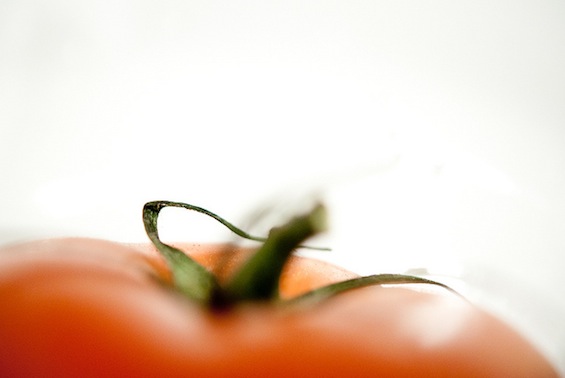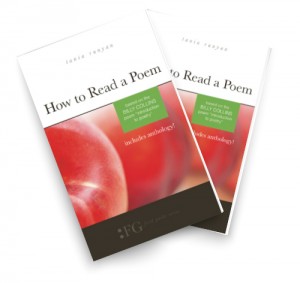I confessed in my last post that I am a teacher of Poetry. I should also confess that I am a poet, for this condition allows me a second perspective from which to see poems—as writer and reader, as giver and receiver, both.
This means that several times a week I sit down with a blank piece of paper and play at making poems. I use the word play instead of work as it conveys the paradox of poetry as the exercise of freedom in the face of constraint.
Play suggests the challenge of discovering ways to subvert the rules of the game, even as we observe them—to figure out how to use limitations to our advantage.
Work, on the other hand, connotes duty, dullness, and drudgery—none of which has anything to do with poetry. (The final—fabulous—lines of Dylan Thomas’s “Fern Hill” describe and enact the dynamic of poetry-as-serious-play better than any I know. They also serve as his epitaph: “Time held me green and dying / though I sang in my chains like the sea.”)
Though I’m sure there are writers who make poems in solitude and silence, I don’t. In fact, I’m talking most of the time. I do this, partly, so I can hear what the poems are saying and whether or not they sing. I also do this to remind myself that when I write I am with someone.
W. H. Auden once said that poetry is a way of “breaking bread with the dead, ” and he’s right. All of the poems I’ve ever fallen in love with—and all of the poets who wrote them, dead and alive—are in the room with me as I write. They are informing the language I choose to use, the music of my lines, and the timbre of my voice, even as they stretch the limits of my vision. They are the Company I keep, and in return for their long and good companionship, I offer them my own poems.
Finally, speaking, singing, and listening to my own poems serves to remind me of the constant, yet invisible, presence of The Reader, whoever he or she may be. Just as surely as there are readers who fall in love with poetry, there are poets writing poems with the specific purpose of wooing them. I know this because I am one of them.
Robert Frost once said of the process of writing poetry, “No tears in the writer, no tears in the reader. No surprise in the writer, no surprise in the reader.” He might also have added, “No love in the writer, no love in the reader.” Within this dynamic, poetry becomes a gesture, a set of signs and symbols expressing the shared humanity of reader and writer—concepts expressed through the material substances of book and ink, paper and pen—and so aspires to the condition of sacrament.
Any effort to define Poetry (with a capital “P”) in an exhaustive way is doomed to fall short, and this brief essay is no exception to that mighty rule. One reason for this inevitable incompleteness is that Poetry (like Love) is an abstraction, whereas true poetry (like true love) is found in the flesh-and-breath experience of it. Given this, it somehow seems fitting that I must finally resort to poetry to elucidate Poetry, and close this meditation with a poem I wrote some years ago when asked to define what Poetry meant to me.
Mille Grazie, Dear Reader, & Buon Appetito!
Poet’s Heresy
“I feel that the Godhead is broken up like bread at the supper,
and we are the pieces.” –Melville, Letter to Hawthorne, Nov 17, 1851
I’m a Sicilan woman
and my poems say mangia!
I want to feed you
bread and wine, fruit and feast,
blessed and broken words
to chew, chew, chew.
I want you to eat them
purely for pleasure,
to put your lips around p,
crack k’s with your crowns,
roll l’ s across your taste-budded tongue,
to swallow sweet & easy
the meal of your life.
For it is what your body craves,
your heart sorely wants,
what your gut loves.
It is lies & truth, death & life,
sweet/sour, adazzle/dim,
what you have always
and have never known.
It is itself and you besides,
every thing & no thing at all.
It stuffs you full and leaves you
heavy, hungry, starved for more.
It makes you glad.
It troubles your sleep.
It is my body & my blood.
Here. Take. Eat.
Post by Angela Alaimo O’Donnell, author of Saint Sinatra and Other Poems. Image by Claire Burge. Used with permission.
___
How to Read a Poem: Based on the Billy Collins Poem “Introduction to Poetry”
- Re-Inventing the Ode - March 19, 2014
- Poetry: Mirroring the Unseen - June 26, 2013
- Haiku: Pierced by Beauty - December 19, 2012


Megan Willome says
You’re my kind of heretic.
It’s funny, I never read my poems aloud until I bring them to my writers’ group. Then they’re totally different. Why don’t I read them aloud at home? I read aloud every single thing I edit! Hmm.
Eric 'Bubba' Alder says
Well of course you’re a poet. That’s pretty obvious, to me. I think almost anyone who loves poetry is also a poet in one way or another. (Sometimes musically)
Besides, why else would you go by you initials, L.L.? Just like W. H. Auden or ee cummings.
Karen Swallow Prior says
I will be sharing this with my department’s poetry writing students!
L. L. Barkat says
Eric, I’m honored that you’d think I’m as lively and charming as Angela O’Donnell (she wrote this post :).
As for the L.L. I just love the symmetry. I guess that’s poetic in its way! 🙂
Eric 'Bubba' Alder says
D’oh! And it’s right there on the bottom in bold letters and everything!
Well, you’re still a poet, L.L. 🙂
L. L. Barkat says
No harm done, Eric. It made me smile 🙂
Maureen Doallas says
I apologized to you in a tweet, Angela. I was thinking of LL and her Puritans and put in her name as the writer of this post. A senior moment indeed that I corrected online, and that LL fixed in the RT. Mille grazie.
Fortunately, I haven’t been experiencing senior moments in writing poetry lately and liked my own tweets enough from last night’s Twitter jam that I created a poem from them. I’ll post it Tuesday with audio.
Your “Poet’s Heresy” is wonderful. I could hear it even though I have no idea what your voice sounds like.
What a feast to have poetry one can eat. A friend of mine calls his poetry posts “Eat Poetry”.
I also take to talking aloud when writing, though never when anyone else is in the house, dogs excepted (they’re a great audience until an UPS truck arrives).
Angela Alaimo O'Donnell says
Hi Megan,
So happy to find a Partner in Poetry Heresy!
Yes, it’s interesting how the poems sound different coming from our mouths than they do when we hear them in our heads!
Also, it’s always a surprise to me to hear other people read my poems out loud. Somehow I hear things in them I hadn’t intended–or hear things missing I had meant to be there. It makes me realize that I have preconceived notions about how they ought to sound that aren’t always in line with how they actually do (if that makes sense).
In any case, the lesson (for me) is always the same: The Ear Rules, and there’s no substitute for having (and cultivating) a Good One!
Cheers & Thanks,
Angela
Angela Alaimo O'Donnell says
Eric & L.L.,
Thanks, Eric, for confusing me with Laura! You honor me.
It’s true that the moniker matters.
Henceforth I shall sign myself–using all my names–
A.A.G.O’D (!)
Angela Alaimo O'Donnell says
Hi Karen,
Thank you for thinking the post worthy to share with your writing students! I would love to hear their responses. I’m sure they’ll add their own (brilliant!) observations.
Very Best,
Angela
Angela Alaimo O'Donnell says
Hi Maureen,
No apology necessary! In fact, it is I who must apologize as I am not yet schooled in Tweet & Twitter–so I missed your message.
Thanks for your good words about “Poet’s Heresy.”
I shall look for your Tuesday Audio poem!
(And, yes, our dogs are such good listeners–so attentive and open to possibility! As long as I don’t say any of the magic words (“outside,” “walkies,” or “treat,” mine will lie at my feet for hours–even when UPS arrives!)
Cheers,
Angela